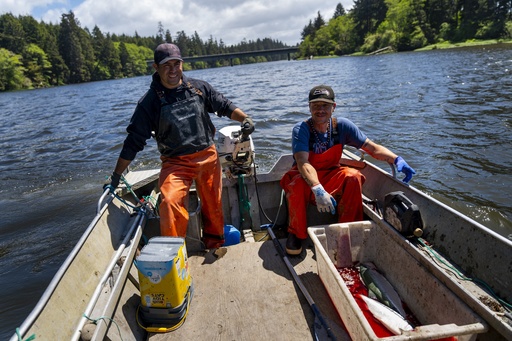Governor Jay Inslee of Washington State recently announced that Native American tribes in the state will receive a portion of the funds raised by a significant climate law. The $52 million allocated from the 2021 Climate Commitment Act will aid tribes affected by climate change and rising sea levels. The funding will support initiatives such as moving to higher ground, installing solar panels, purchasing electric vehicles, and restoring wetlands to mitigate the impact of these environmental challenges.
The Quinault Indian Nation, located on the Olympic Peninsula, will receive $13 million to help relocate their villages to safer areas away from tsunami zones and flooding. The tribe has been working on relocation efforts for over a decade, but previous grants did not cover the full costs required for the move. The funding will go towards constructing new buildings for child and elder services, emergency shelters, a water tank and pump house, a museum, and a cultural center.
Governor Inslee emphasized the importance of the Climate Commitment Act, which auctions off carbon emission allowances to generate revenue for various programs. However, critics attribute the law to increased gas prices and are pushing for its repeal in November.
Several tribes across Washington, including the Skokomish Tribe, Makah Tribe, Lummi Nation, Spokane Tribe, and Shoalwater Bay Tribe, will receive funding ranging from $620,000 to $2.8 million for projects like home weatherization, solar panel installation, salmon restoration, and energy efficiency improvements.
The initiative aims to address the challenges posed by climate change and provide support to tribal communities vulnerable to its effects. Governor Inslee, along with tribal leaders, announced the distribution of grants during a news conference in Taholah, highlighting the importance of investing in sustainable and resilient practices to safeguard local populations and the environment.


